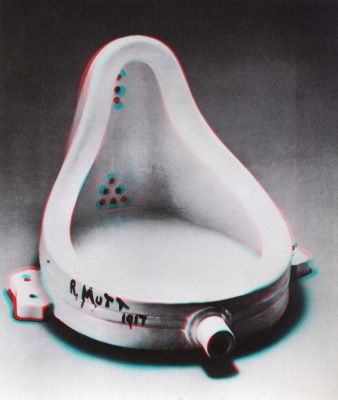I find in my diary that the Prime Minister, Mr. Lloyd George, invited me to breakfast in April 1917. Some third person was, I understand, to have been present, but he did not arrive, so that I found myself alone in the classic dining-room of No. 10, Downing Street, while my host was finishing his toilet.
Presently he appeared, clad in a grey suit, smart and smiling, with no sign at all that he bore the weight of the great European War upon his shoulders. Nothing could have been more affable or democratic, for there was no servant present, and he poured out the tea, while I, from a side table, brought the bacon and eggs for both. He had certainly the Celtic power of making one absolutely at one's ease, for there was no trace at all of pomp or ceremony—just a pleasant, smiling, grey-haired but very virile gentleman, with twinkling eyes and a roguish smile. No doubt there are other aspects, but that is how he presented himself that morning.
He began by talking about the great loss which the country had sustained in Lord Kitchener's death, speaking of him in a very kindly and human way. At the same time he was of opinion that long tropical service and the habit of always talking down to subordinates had had some effect upon his mind and character. He was a strange mixture of rather morose inactivity and sudden flashes of prevision which amounted to genius. He was the only man who had clearly foreseen the length of the war, and but for Turkey, Bulgaria, and other complications he probably overstated it at three years. There were times when he became so dictatorial as to be almost unbearable, and he had to be reminded at a Cabinet Council by Lloyd George himself that he was in the presence of twenty men who were his peers, and that he could not refuse them information or act above their heads. I confess that it struck me as very natural that a big man with vital knowledge in his brain should hesitate in a world crisis to confide it to twenty men, and probably twenty wives, each of whom was a possible leak. In spite of his genius Kitchener was not accessible to new ideas. He could not see clearly why such enormous munitions were necessary. He opposed tanks. He was against the Irish and Welsh separate divisions. He refused the special flags which the ladies had worked for these divisions. He was as remote from sentiment as a steam hammer, and yet he was dealing with humans who can be influenced by sentiment. He obstructed in many things, particularly in the Dardanelles. On the other hand, his steps in organizing the new armies were splendid, though he had attempted—vainly—to do away with the Territorials, another example of his blindness to the practical force of sentiment. Miss Asquith had said of him, "If he is not a great man he is a great poster," and certainly no one else could have moved the nation to such a degree, though the long series of provocations from the Germans had made us very receptive and combative.
Lloyd George was justly proud of the splendid work of the Welsh Division at the front. He had been to Mametz Wood, the taking of which had been such a bloody, and also such a glorious, business. He listened with interest to an account which I was able to give him of some incidents in that fight, and said that it was a beautiful story. He had arranged for a Welsh painter to do the scene of the battle.
He was interested to hear how I had worked upon my history, and remarked that it was probably better done from direct human documents than from filed papers. He asked me whether I had met many of the divisional Generals, and on my saying that I had, he asked me if any had struck me as outstanding among their fellows. I said I thought they were a fine level lot, but that in soldiering it was impossible to say by mere talk or appearance who was the big man at a pinch. He agreed. He seemed to have a particular feeling towards General Tom Bridges, of the 19th Division, and shortly afterwards I noticed that he was chosen for the American mission.
I talked to him about my views as to the use of armour, and found him very keen upon it. He is an excellent listener, and seems honestly interested in what you say. He said he had no doubt that in the problem of armour lay the future of warfare, but how to carry it was the crux. He said that the soldiers always obstructed the idea—which was my experience also—with a few notable exceptions. I mentioned General Watts of the 7th Division as being interested in armour, and he agreed and seemed to know all about Watts who, though a "dug-out," was one of the finds of the war.
He was much excited about the revolution in Russia, news of which had only just come through. The Guards had turned, and that meant that all had turned. The Tsar was good but weak. The general character and probable fate of the Tsarina were not unlike those of Marie Antoinette—in fact, the whole course of events was very analogous to the French Revolution. "Then it will last some years and end in a Napoleon," said I. He agreed. The revolt, he said, was in no sense pro-German. The whole affair had been Byzantine, and reminded one of the old histories.
Citizens!
The Provisional Government, having considered the military situation of the Russian State, and being' conscious of its duty to the country, has resolved to tell the people directly and openly the whole truth. See more
There are rumors that the Emperor Nicholas II and all the royal family are to be sent to Siberia, despite the fact that in March he was given guarantees that he would have the right to choose between whether to reside in England or Crimea. Kerensky, the only socialist in the ranks of the Provisional Government, has told his intimates that Lloyd George has ruled out the former Tsar’s being allowed to enter England.
Twice a day a soldier brought in a nauseous dish, a kind of soup made of the bones and skin of fish, none too fresh. Sometimes, if the soldier happened to be in an especially vicious mood, he spat in the soup before giving it to me, and more than once I found small pieces of glass among the bones. Yet so ravenous was my hunger that I actually swallowed enough of the vile stuff to keep myself alive. Only by holding my nose with my fingers was I able to get a few spoonfuls down my throat. What was left I was careful to pour into the filthy toilet, for I had been told that unless I ate what was given me I would be left to starve. See more
The Germans kept up a constant charade of abundance; the cook served us the most filling meals, which our fraternity, in its emigration, had long forgotten. As we looked out of the windows of our compartment, we were struck by the total lack of adult men: only women, teenagers and children were visible at the stations, in the fields, and on the streets.


Black despair overcame me when I regained my room. Kerensky had been non-committal ; but I had hopes that my allusion to him as omnipotent might have some favourable effect ; so I sat in the corner nearest the door, straining my ears to catch the sound of approaching footsteps. See more
What a transformation scene we have witnessed here since you left ! Though I was prepared for something unexpected happening, I never imagined that the Empire would crumble to pieces in a few days at the first breath of revolution...
The military outlook is most discouraging, and I, personally, have abandoned all hope of a successful Russian offensive in the spring. Nor do I take an optimistic view of the immediate future of this country. Russia is not ripe for a purely democratic form of government, and for the next few years we shall prob- ably see a series of revolutions and counter-revolutions, as in the ' troublous times ' nearly five hundred years ago. As an old literary lady wrote me the other day, ' Russia is like a Slav woman who loves the man in whom she finds a master and who, in the words of an old peasant song, asks her husband if he does not love her any more when he no longer beats her out of jealousy.' The Emperor was too weak to be respected as a master, while he was blind to the fact that the time for concessions had come. A vast Empire like this, with all its different races, will not long hold together under a Republic. Disintegration will, in my opinion, sooner or later set in, even under a federal system. The Russian people are very religious, but their religion is one of symbols and ceremonies, and in their political life they look for symbols also. They must have as chief of the State some figurehead whom they can look up to the feelings of reverence as the personification of their national ideals.
I slept very well. The weather was warm and that is why the road had already become worse; I took a walk. At 11 o'clock we went to Mass. Olga still had a sore throat and a temperature around 39.4, how boring — she is still not far from having the measles. I took a walk and worked on the island with Tatiana. At 6 o'clock Anastasia went with us to services. I again passed the evening with Tatiana and passed the night by myself.